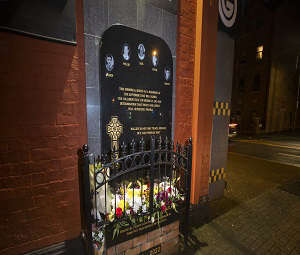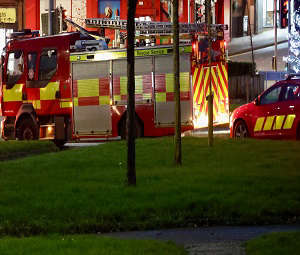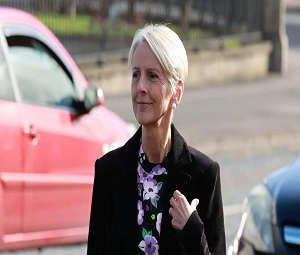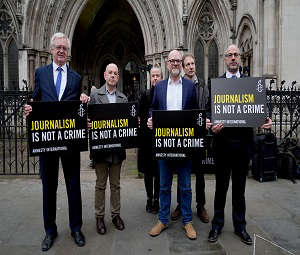
By Q Radio News
The new Secretary of State will visit Northern Ireland for the first time since taking the job later.
She will make her first public appearance at Belfast Met's Titanic Quarter campus.
The former culture secretary, who replaced James Brokenshire after he resigned from the Government due to ill health, has the unenviable task of trying to forge consensus between the DUP and Sinn Fein and avert a return to Westminster direct rule.
"I told the new British Secretary of State that her Government has been part of the problem to date," said Mrs O'Neill.
"If any new talks to restore the Executive are to succeed, there must be a new approach from Karen Bradley's Government.
"They must stop enabling and defending the DUP's denial of rights which is blocking a return to powersharing and which would not be tolerated in her own country."
Mrs Foster, whose party's 10 MPs prop up the Conservative minority government at Westminster, had more positive exchange with the secretary of state.
"I welcomed her to her new post and I look forward to establishing a strong working relationship in the months ahead," she said.
A DUP colleague of Mrs Foster later accused Sinn Fein of blocking progress in Northern Ireland by pursuing a narrow political agenda.
Assembly member Christopher Stalford said 12 months without a devolved government had left the region's public services facing major problems.
"The DUP wants to see progress made and we remain committed to seeing devolution restored," he said.
"There won't be progress if Sinn Fein continue to ignore everyone and everything beyond their own narrow base."
On FJanuary 9 last year, Stormont was plunged into crisis when Mr McGuinness resigned as deputy first minister in protest at the DUP's handling of a botched green energy scheme.
The structures of powersharing meant his departure forced DUP first minister Mrs Foster from office and effectively torpedoed the coalition administration.
Sinn Fein activists erected a billboard in Mr McGuinness's beloved Bogside neighbourhood in Londonderry on Tuesday quoting his declaration on resigning, "no return to the status quo".
The rift over the renewable heat incentive (RHI) affair ended a decade-long partnership between the unionist and republican parties.
Mr McGuinness died two months after he quit from a heart condition.
Optimism created by a symbolic handshake at his funeral between Mrs Foster and Mrs O'Neill proved short-lived and, despite numerous rounds of UK government-convened negotiations and missed deadlines, Northern Ireland remains without a devolved government.
Civil servants are in charge of running the region's rudderless public servants but their hands are tied by an inability to make policy decisions.
As a consequence, problems are mounting up.
Health waiting lists in the region are among the longest in the UK.
The spectre of a re-imposition of direct rule from Westminster looms on horizon.
If an error ridden boiler scheme was the cause of the meltdown, other more traditional green/orange disputes soon replaced the RHI as the main focus of the impasse.
A stand-off over Sinn Fein's demand for stand-alone legislation to protect Irish language speakers is now the main obstacle preventing the restoration of devolution.
The DUP's opposition to lifting the region's ban on same sex marriage and the parties failure to implement new mechanisms to address the toxic legacy of the Troubles are among other key sticking points.
The wrangle took an unexpected twist in June when the DUP emerged from the snap general election as Westminster kingmakers and entered into a confidence and supply deal with Theresa May's minority Tory government.


 Officer to be prosecuted for offence linked to Troubles memorial during pandemic
Officer to be prosecuted for offence linked to Troubles memorial during pandemic
 Pair appear before court charged with nurse’s murder
Pair appear before court charged with nurse’s murder
 Woman dies in West Belfast house fire
Woman dies in West Belfast house fire
 Eleanor Donaldson’s bid to have two charges withdrawn ‘should not delay trial’
Eleanor Donaldson’s bid to have two charges withdrawn ‘should not delay trial’
 Police surveillance operation to unmask journalistic source ruled unlawful
Police surveillance operation to unmask journalistic source ruled unlawful